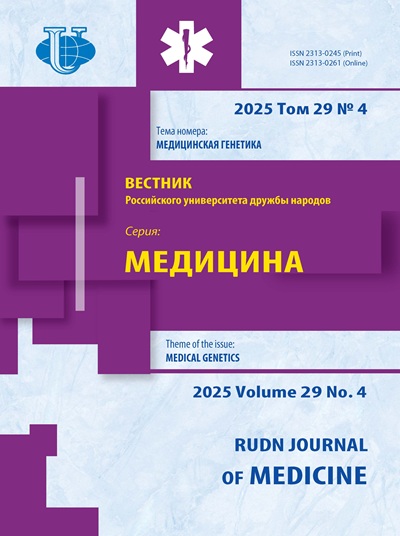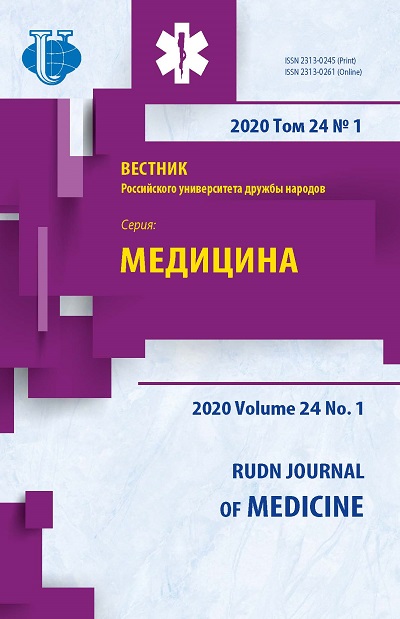The risks of injection anesthesia in dentistry
- Authors: Bogaevskaya O.Y.1, Sokhov S.T.2
-
Affiliations:
- Peoples Friendship University of Russia
- Yevdokimov Moscow State University of Medicine and Dentistry
- Issue: Vol 24, No 1 (2020)
- Pages: 61-68
- Section: Stomatology
- URL: https://journals.rudn.ru/medicine/article/view/23395
- DOI: https://doi.org/10.22363/2313-0245-2020-24-1-61-68
- ID: 23395
Cite item
Full Text
Abstract
The article intends to study the risks of performing injection anesthesia for dentists experiencing chronic fatigue syndrome. Materials and methods used: The survey was conducted from August to November 2019 at various dental clinics of Moscow, with 308 dentists having filled in the questionnaire. Information source: The “Questionnaire on Assessing Injection Security and Chronic Fatigue Syndrome” was offered to dentists from clinics representing different types of ownership and contained 88 questions. Results: 97,14% of the respondents were feeling anxious while performing local anesthesia, yet, regrettably, 14,28% of them had to refer the patient to a dental surgeon for this procedure. 17,14% (n=53) of the 308 respondents noted that they had to confront the patient’s general condition worsening significantly due to a local anesthetic injection prior to the start of dental treatment. The mistakes made mostly had to do with anesthetic choice (26,73%), needle choice (12%), and needle breakage (3,78%). 17,14 per cent of dentists had the experience of confronting grave, even fatal outcomes of anesthesia. The majority of dentists (74,29%) work from 41,2 to 57,7 hours weekly. The risk of developing chronic fatigue syndrome was assessed as high in 11,43% of all cases. Conclusion: Given the absence of prophylaxis in 45,71% of cases related to anesthetic injection and the increased concentration of vasoconstrictor in the anesthetic in 88,57% of all instances, keeping records of complications caused by injection anesthesia is recommended.
About the authors
O. Yu. Bogaevskaya
Peoples Friendship University of Russia
Author for correspondence.
Email: 7959369@gmail.com
Moscow, Russian Federation
S. T. Sokhov
Yevdokimov Moscow State University of Medicine and Dentistry
Email: 7959369@gmail.com
Moscow, Russian Federation
References
- patients died in dental clinics in Russia in 2015 [archive]. Link active in 21.10.2019 https://doctorpiter. ru/articles/15812/.
- Petrikas A Zh. Anesthesia in endodontics: uchebnoe posobie. M.: Med. Inform. agentstvo, 2019. 218 р.
- Rabinovich S.A., Vasiliev Yu.L. Local anesthesia. History and modernity: uchebnoe posobie. M.: poli-media pressa 2016. 178 p.
- Sokhov S., Afanasiev V., Anisimova E. Anesthesia and emergency care in outpatient dental practice: uchebnoe posobie. M.: GEOTAR-Media, 2019. 208 р.
- Brovka D.K. The use of local anesthetics by dentists in republic of Belarus// Universum: Meditsina i farmakologiya: elektron. nauchn. zhurn. 2015. № 2 (15) http://7universum.com/ru/med/archive/item/1929.
- Iordanishvili A.K. Advice to the dentist on the implementation of injection methods for pain relief on the jaw // Institut stomatologii. 2005. № 2. С. 64—65.
- Macharadze D. Sh., Peshkin V.I., Bogaevskaya O. Yu. Allergy to local anesthetics in dentistry: uchebn. posobie. M.: Izdatelstvo Rossiiskii universitet druzhby narodov, 2017. 32 р.
- Malamed SF. Handbook of Local Anesthesia. 6th ed. St. Louis, Mo: Elsevier Mosby, 2013.
- Stolayrenko P.U. Local anesthesia in dentistry. Choice of drugs. Complications. Prevention: uchebnoe posobie. 3-e izd. Samara: Ofort; SamGMU, 2010. 235 р.
- Komarov Yu.M. On risk insurance for professional medical activities. Meditsinskoe strakhovanie. 2003;12(51).
- Sazanov V.V., Ratmanov M.A. et all. Infuence of doctors characteristics on quality of medical service for men of reproductive age. Medicinskij vestnik Bashkortostana. 2015;10(1):20—24.
- Golubnichii A.A., Tuksina E.A. Data analysis software review // Uspekhi sovremennoi nauki. 2017. № 1(4) С. 104—106.
- Kuvshinova O.A. Problems social construction advanced age. Tomsk State University Journal. 2012. № 1(17). С. 24—30.
- Komarov S.G., Komarov G.A. Chronic fatigue syndrome: civilization disease. Standards and quality.2009;11:54—57.
Supplementary files















